This recap of the 2023 Oregon Legislative session is the opinion of Khanh Pham, a Portlander who serves as Oregon House Representative for outer southeast Portland (District 46).
This was my first full session as a sitting member of the Joint Committee on Transportation, and I continue to be moved by my constituents’ enthusiasm for tackling transportation reform. From the radical joy that accompanies citywide Pedalpalooza rides, the hopefulness expressed by last year’s Youth vs ODOT climate strikes, or the grief and fury we collectively share as traffic fatalities continue to mount — transportation advocates deeply care about our streets because we deeply care about each other and want to see a world in which everyone moves through our community safely, affordably, sustainably and joyfully.
As a legislator and transportation advocate I wanted to share with BikePortland’s readers (thanks Jonathan!) my reflections on the session as well as four key takeaways about where we go next.
1) Community-led leadership delivers community supported results – we are more powerful than we know.
I’m deeply hopeful about our collective potential to shape the future of Oregon’s transportation system. Our collective efforts to build power and awareness for the need for an overhaul of transportation policy are showing signs of success. Perhaps nothing embodies this success more than HB 3014, which provides greater flexibility for school districts to spend funding on programming for students to bike, walk and take transit to school. In many ways this bill’s passage represents the best of our community, our government and our democratic process. I’m so grateful for the leadership from Oregon Walks, Community Cycling Center, Coach Sam Balto, Representatives Hoa Nguyen and Courtney Neron and their staff, and for policymakers at Metro, MESD and Eugene 4J. I’m also grateful for the dozens of individuals and organizations who engaged with the Just Crossing Alliance – I’ll never forget the remarkable turnout on the JCA lobby day and the month of powerful testimony demanding a right sized bridge.
Similarly, the concern my colleagues and I heard from constituents about tolling ultimately helped spur Governor Kotek’s swift action to impose a tolling moratorium until 2026. While I believe congestion pricing should serve as a key tool in managing our transportation system, ODOT’s tolling proposal was an inequitable new taxing mechanism that significantly raised taxes on commuters only to direct the new revenue towards ODOT’s expensive freeway-building addiction. This moratorium simply wouldn’t have happened without community members and Clackamas County legislators, whose combined advocacy caught the Governor’s attention. I will continue to watchdog congestion pricing policy to ensure we don’t further prioritize funding freeway expansion over investments in congestion relief, safer streets, or climate action.
2) We need similar coordination of community and elected leadership to prevent the state from driving off a fiscal cliff.
Last month, the Urban Mobility Office released the finance report requested by Governor Tina Kotek. For the first time in memory, ODOT fully admitted that the agency had no forseesable plan to pay for their multiple costly freeway expansions.
While this report is a cause for validation and celebration for advocates who have sounded the alarm on ODOT’s finances for years, the report’s overarching findings remain grim. ODOT’s own forecasts predict a precipitous drop in revenue in the years ahead as motorists switch to cars that use less (or no) gasoline, and this lack of funding coincides with an alarming need to invest in an aging system suffering from decades of disinvestment and inertia. I don’t have to tell you about the soaring traffic fatalities, the growing potholes, the lack of sidewalks, or the 700 bridges across the state in need of seismic retrofit – much of which could be addressed by redirecting the billions we’re spending on widening roads. The Highway Trust Fund is about to be bankrupt at exactly the moment the bill for maintenance and safety is due – and yet ODOT still intends to use the state credit card to spend billions on more freeway lanes.
Unfortunately, the legislature yawned at the chance to grapple with these structural problems this session. A bill I sponsored to increase funding for fixing dangerous state-owned highways was whittled down to a mere $1 million despite over $300 million in need, even after heart-wrenching testimony from elected officials and bereaved family members. Two bills to ask ODOT to study passenger rail service died before receiving floor votes. Bills to encourage ODOT to prioritize maintaining existing roads over building new ones and to add new voices to the Oregon Transportation Commission never received hearings. Legislation to subsidize electric bicycles and to extend the wildly popular electric car rebate program both died as well. The signature accomplishment of the Joint Committee on Transportation – allocating funding for the sorely needed replacement of the Interstate Bridge – avoided facing these dire fiscal circumstances by raiding the General Fund for revenue, siphoning money away from affordable housing and education and breaking the decades-long precedent that transportation projects must be paid by transportation revenue.
I share these anecdotes with trepidation. To be clear, I don’t believe these outcomes are reason for discouragement, nor do I wish to suggest my colleagues aren’t interested in addressing these looming problems. While this inaction is cause for alarm, I’m heartened by the growing consensus I’m hearing from legislators and Oregonians alike across the state that this status quo is untenable, and it’s time to prioritize addressing these problems for the health and well-being of both our communities and the economy.
Fortunately, an opportunity looms.
“We can meet the moment the climate emergency demands… by recognizing our uncertain future requires an unapologetic commitment to building a transportation system that rapidly phases out fossil fuels.”
3) The stars are aligning for a unique opportunity for transportation reform. We must seize it.
The upcoming long legislative session marks a crucial opportunity in our larger movement for transportation justice and reform. All signs suggest that legislators will be prioritizing a generational investment in transportation in the 2025 legislative session. With the right leadership from both elected officials and community members, we have eighteen months until a legislative session that promises to face our problems head-on. The end of the gas tax is the end of an era, and it’s time we prepare for the future.
Oregon can invest in transportation that prioritizes public health in every community across the state with cleaner air and water, encouraging more walking and biking while dramatically reducing traffic fatalities. We can get congestion pricing right and ensure motorists are never again stuck in freeway traffic while minimizing the burden to low-income commuters and also maximizing the availability of healthier alternatives to driving. Oregon can prepare for a just transition in which every Oregonian receives rebates for buying both electric cars and electric bikes. We can dramatically increase transit service locally and regionally, running irresistibly frequent and reliable buses and trains across our region and the state. We can prioritize maintenance of existing roads over expansion of new ones, saving money while simultaneously preparing our community for future climate and seismic events. We can make good on our commitment to replace the existing Interstate Bridge with a new crossing that includes excellent transit and does so without overspending on unnecessary and devastatingly expensive freeway components. We can meet the moment the climate emergency demands and govern as though 40% of Oregon’s carbon emissions come from transportation, recognizing that our uncertain future requires an unapologetic commitment to building a transportation system that rapidly phases out fossil fuels. We can propose a Green New Deal by ensuring the construction of new bridges, bus lines and sidewalks provides economic opportunity, stability and investment for tens of thousands of Oregonians with family-wage jobs and Project Labor Agreements. These reforms stand to bring prosperity and health to every Oregonian across the state.
This isn’t hypothetical rhetoric – each of these ideas represent planks of a policy platform I’m eager to bring to community as we approach the 2025 legislative session. Designing and enacting this platform will require more of the type of policy and advocacy collaboration that powered Just Crossing Alliance and the Bike Bill – which, fortunately, we’ve already demonstrated is effective and well within our grasp.
4) For Community Led Solutions to Work, we have to fight for democracy — and anti-democratic obstructionism is a rapidly growing problem.
For the seventh time in four years, Republican Senators chose to shut down our state government instead of showing up to vote. While I and my House colleagues passed hundreds of bills, legislation stacked up in the Senate, waiting for Republican Senators to return to work. This ultimately led to the death of numerous bills and to our office undertaking what would otherwise enjoy months of legislative review and budgetary consideration in just over a week. This is an ineffective, broken and antidemocratic way to govern. 46 states and the US Congress have a Simple Majority requirement; Oregon should align its rules with the rest of the country. I introduced legislation last month that would allow us to operate under Simple Majority rule. Without passing reforms we appear doomed to remain hostage to repeated shutdowns; with these changes, Oregon’s legislature could operate like Minnesota’s, which this spring passed what national advocates are calling the country’s best transportation package. We’re also seeing attempts to dilute democracy locally in Portland as well; I recently signed a letter opposing an initiative to weaken the charter proposal approved by 58% of voters last fall.
If you believe that the majority of Oregonians would like the state to pursue cost-effective solutions to tackling congestion, air pollution, climate change, and traffic safety — as I do — I need your help standing up for the democratic institutions and practices that empower constituents to express these views. Without truly democratic processes, community engagement is heavily manipulated by the entrenched and powerful, and we’ll continue to see the highway lobby use their resources to manufacture support for more of the status quo, at a time when it’s abundantly clear that’s an unacceptable outcome.
I look forward to seeing you in the streets!
I’m feeling a mixture of hope, determination and gratitude for what we collectively can achieve for our community and for our state. I firmly believe we have the opportunity in the years ahead to remake and reinvest our streets in line with our values – it’s up to us to work together to seize it.
I’m under no illusion these are easy fixes, but I didn’t run for office to enact easy fixes, nor did my constituents elect me to shy away from fights to make our community healthier and safer. There is too much at stake to shy away from demanding our streets be a safer, healthier place to walk, bike, drive, or catch a bus. We have a narrow window to make these transformative changes, and with your help in the months ahead, we can chart a better future. In the meantime, I hope you and your community are staying cool during the hottest summer on planet Earth. I hope to see you at the Sunrise PDX celebration of No More Freeways’ Sixth Birthday or a future BikePortland Happy Hour!
BikePortland strives to present opinions from a wide range of perspectives. If you have something you’d like to share, please contact us.



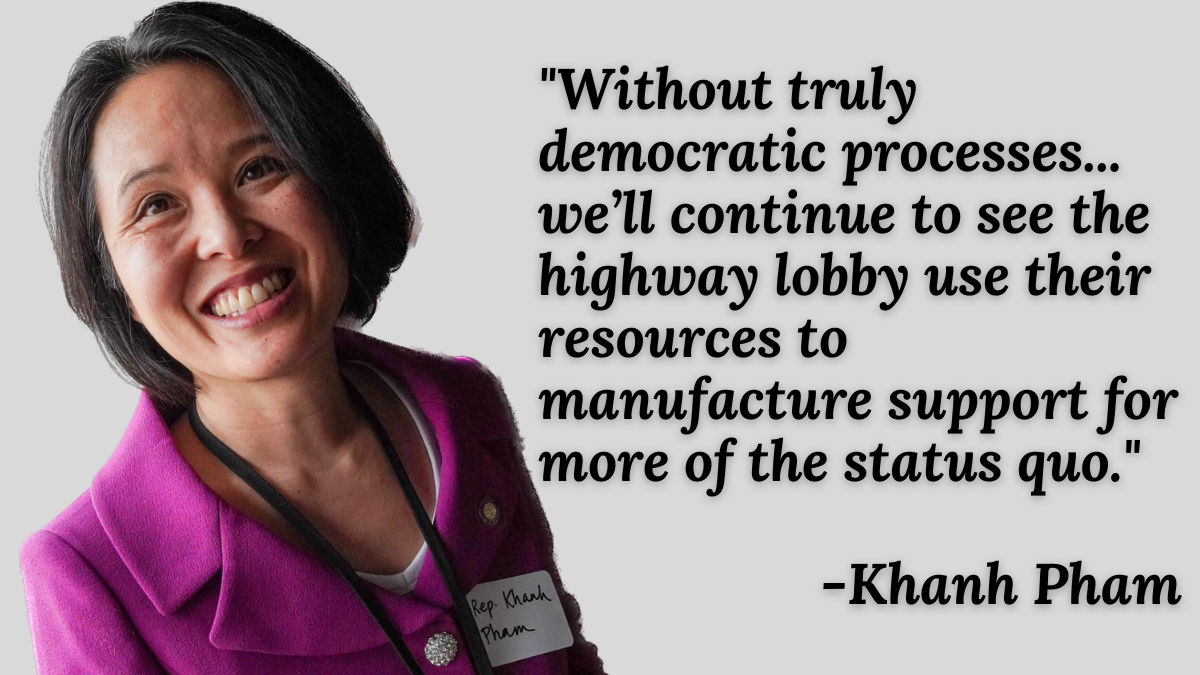
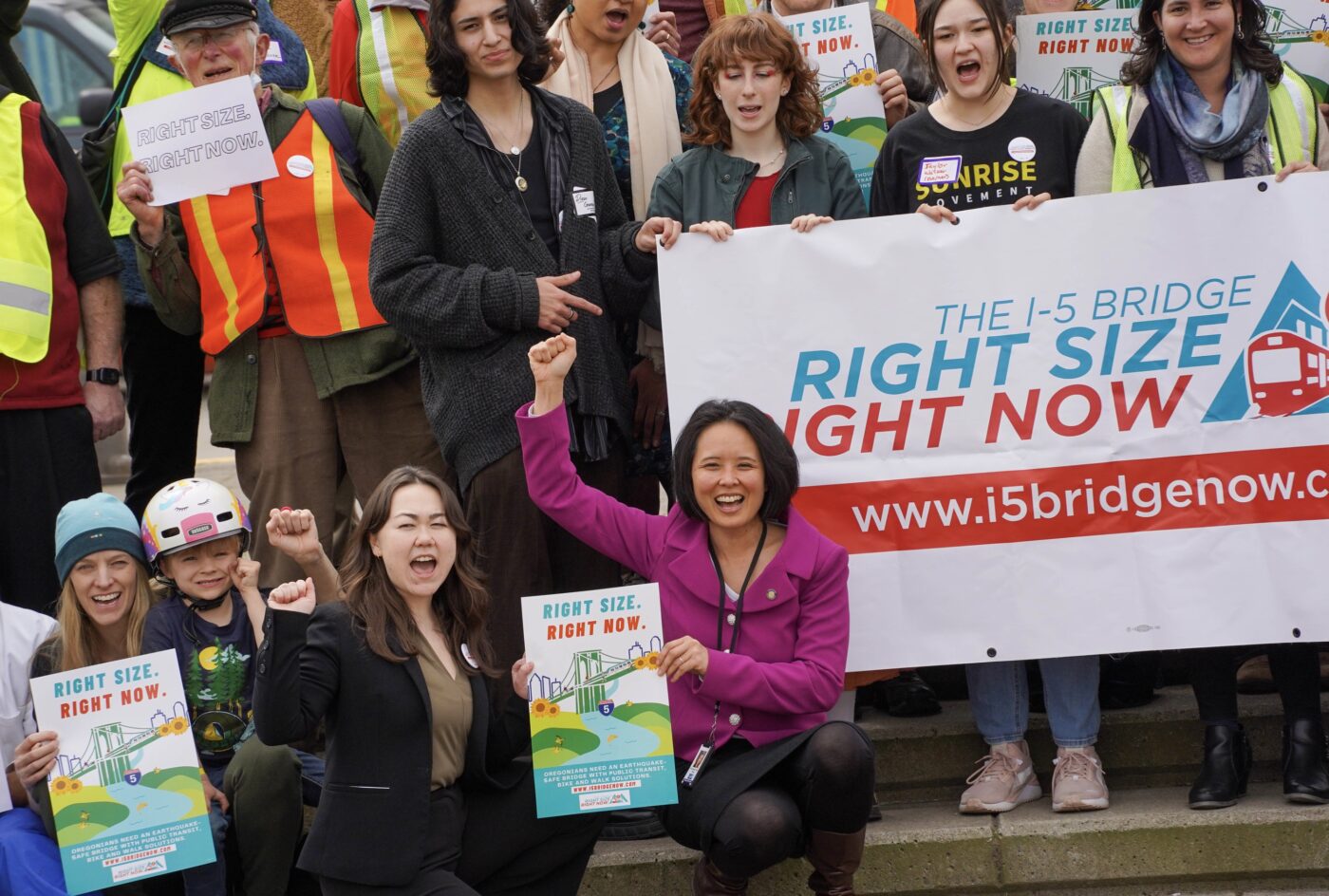

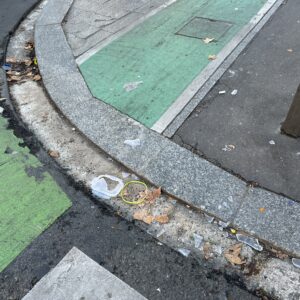
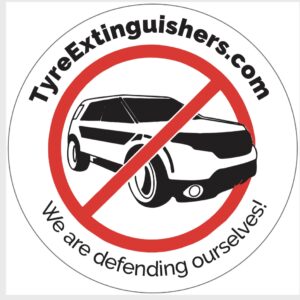
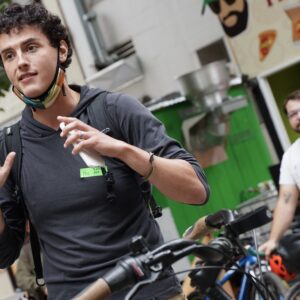
Thanks for reading.
BikePortland has served this community with independent community journalism since 2005. We rely on subscriptions from readers like you to survive. Your financial support is vital in keeping this valuable resource alive and well.
Please subscribe today to strengthen and expand our work.
Same person who proposed Measure 26-238, the measure that wanted to tax capital gains at 0.75%.
Yeah no thanks!
Yes, this tax was a terrible idea, and I hope Rep. Pham learns from her mistake.
Every tax should:
Multnomah County’s unfair taxes cost it over $1 billion in revenue last year, which will only increase as people vote for more unfair taxes and as residents vote with their feet (flee to other counties).
You’re not interpreting that IRS data correctly. For starters, the data is for 2020-2021.
Multnomah County had a net loss of tax payers with a combined income of ~$1 billion. We don’t (to my knowledge) have a Pareto distribution of tax filers by income, but we can ball park by looking at a pareto of the average income of movers to each county. Doing so we get a total of ~1,820 tax payers whose average income is high enough that they might pay the Metro SHS and Multnomah PFA tax. Now, those are marginal taxes, and the total marginal income that could have been taxed by the two local income taxes is ~$120 million. But, Multnomah County also gained 1,520 tax payers whose average income is high enough to pay the two taxes. The marginal income they added was ~$60 million. So the County lost a total of ~$60 million in taxable income. But, the combined tax rate for those two taxes is 2.5%. So, the County and Metro lost ~$1.5 million dollars combined.
Your bonus fun fact, is that when you look at where these wealthy folks went, 80% went to Deschutes, Hood River, Clatsop, Tillamook, and Riverside (CA) Counties. IE, they decided to go wait out the lockdown at their vacation homes in Bend, Palm Springs, and on the Coast.
You can play with the IRS data here.
Rep Pham didn’t “propose” the measure whatsoever. She endorsed it, which is significantly different.
I really enjoyed the Representative’s take on the tolling controversy. The scary part though is that she seems to think that the government she is part of can actually arrive at an equitable solution to adjust people’s driving behavior in a direction that I’m not sure anyone agrees on yet.
Also, why in the world did the Representative or her staff add this at the end?
I have a sneaking suspicion that the statement is not true and seems to be trying too hard to be a wedge issue.
Even with the odd climate statement, kudos to Johnathan for getting such a great guest opinion! Always good to hear from the people that are actually making the decisions.
https://www.nytimes.com/2023/07/19/climate/global-heat-records-july.html
I don’t have a subscription, so could only read the title. I simply find it disingenuous that it can be said without caveat that this month has been the hottest month in the history of the planet.
Perhaps you could ask your favorite AI chatbot to explain the difference between a recorded temperature and a model-based temperature estimate.
https://www.bing.com/new
https://bard.google.com/
https://chat.openai.com/auth/login
I tried looking at the article again on my work computer (shhh) and could see the caveat this time. I do understand recorded temperature, its just that the Representative did not offer one in her statement. Is it just assumed these days that
should read as “during the hottest recorded summer on planet Earth? I guess I’m behind on my climate concerns as what I took as poor writing might just have been acceptable climate innuendo.
This is not the hottest summer the earth has ever seen (we were a ball of molten rock at one point after all), but temperatures are higher this summer than ever previously measured.
It’s not a hyperbolic statement to say this is the hottest summer the earth has ever seen, even if it is technically incorrect (in a way that is not informative).
I agree that it’s hotter now since 1880, but it’s not even close to the hottest the earth has been when life has existed on the planet. I do not wish to offend those that believe the Earth is a few thousand years old, but research leads us to believe that the Earth is billions of years old and in that time supported a vast range of temperatures, many that were hotter than now. I am not sure why this is sticking with me the way it is, but I’ve always needed to be precise as possible at work so have used caveats or alibi’s quite often.
Since its provably not the hottest right now, what is the need to think that this summer, right now is the hottest the Earth has been?
I doesn’t really matter how hot it was when dinosaurs ruled; it matters how hot it has been since humanity developed civilization and invented agriculture. And that’s leaving aside the impacts that a rapidly changing natural world could have on our ability to thrive on earth.
As I said, “hottest ever” is technically incorrect, but that technicality is not helpful.
You could just flat out state you don’t believe in man made climate change. Isn’t that your point with this discussion?
It’s really not. It’s how language has become so malleable of late. It really is simply if someone says “hottest July ever” when they mean something else. I don’t know all the innuendo that goes along with anything unsaid so have to rely on what the simple written word says. If you say “hottest July since agriculture, or recorded history, or mathematical modeling “ that’s fine, and it’s accurate. I just want accuracy with what I read.
What they mean is “hottest July ever since we started recording these things”.
If we want to get real pedantic, we probably can say accurately that this is the hottest July ever, because July as a concept did not exist in the time of the dinosaurs/before human civilization.
She’s a government rep, I’d be far more concerned if she didn’t believe it was possible.
LOL, fair point:-)
Thank you for the informative and inspiring piece, Rep Pham!
The legislators and mayors who united to put the kibosh on tolling were not climate justice organizers. These conservative suburban pro-highway politicians opposed tolling because they wanted to keep use of highways “free” (as in freedumb).
She claims it was because the money would go to freeway construction but tolling roads does not have to fund that. She is just pandering. Tolling is a fair way to pay for infrastructure. I have no idea reading this how she plans to pay for any infrastructure. It still takes money to maintain roads, not just build new ones.
She is correct that the gas tax won’t work in the future but does not explain any of her funding mechanisms except a bill to move general funds into transit as if we have a ton of general funds available.
She then complains that we are robbing general funds when we should be funding transportation projects with transportation funding after she just REJECTED tolling.
My head is spinning.
FWIW, I categorically opposed tolling (or any fee or tax) that does not disproportionately soak the upper-middle class* and the rich. I commented because the “spin” in this framing was dishonest.
* a large percentage of portland is upper-middle class and this is why I kind of hate portland
If someone gave you enough money to qualify as upper-middle class, would you accept it?
I’m firmly in the upper middle class, MORG. I am giving and plan to give the vast majority of the money I earn/invest to extremely poor people who do not live in the USA as no strings-attached cash transfers (basic income*).
https://www.givedirectly.org/ubi-study/
*universality of welfare is a libertarian idea that I vehemently reject. i support basic incomes (or better — an income guarantee) not reactionary universality.
The tolling “stall” was primarily related to the planned tolling for the Abernethy and Tualatin River Bridges on I-205. These tolls were related to raising $ to cover the cost of adding a lane to 205, per the bill passed in 2017. ODOT and, IIRC, Metro, are looking at tolling I-5 and -205 from the state line down to Tualatin, as congestion pricing and maintenance funding. Fast-tracking tolls on the two relatively small segments that are really close to each other, really did not make sense. Also, folks who were not “conservative pro-highway politicians” found significant flaws in the Environmental Assessment for the Abernethy/Tualatin Bridge tolling project,
Tolling to expand highways is hardly climate justice. And that was the plan. It had to be stopped, even by using a coalition with multiple goals. This may prevent widening I-205 between Oregon City and Stafford road, which would be one small win. Trying to thread a workable path through the political process to achieve “climate justice” requires a lot of thought and effort and engagement. I personally welcome all well-intentioned efforts toward that end.
LOL at the spin that the reactionary pro-freeway freedumb politicos in clackamas were in coalition with the ojta/jca and rep pham.
not sure your point, but ultimately, whether they are in cahoots or share the same values or not, a baptists-and-bootlegger coalition that stops a massive freeway expansion is worth celebrating, regardless of how it happened.
people in sacrific zones are not celebrating the preservation of the GHG-spewing status quo in Oregon.
stopping an expansion is literally the exact opposite of the status quo?
Not making things worse is good but current (status quo) emission are consistent with 2.5 C of global heating. Until we dramatically reduce VMT and ICE vehicle use we are still at or near a status quo climate scenario.
yes, obviously. we’re working on it. before we reduce VMT, we gotta stop expanding it. We’ve had tremendous success doing so going up against the freeway industrial complex – ODOT has given $110 million to plan and push for the Rose Quarter Freeway Expansion.
you’re welcome to join us if you’re in agreement that we need to do more – hell, you’re welcome to donate to NMF if you think that we’re not doing enough.
My primary objection to widening I-5 through the Rose Quarter I-5 is its blatant disregard for public safety. As proposed, the plan worsens existing traffic hazards. This FACT should be reflected in official ODOT studies. The accident ratings, both number of accidents and their severity worsen to produce more multi-car pileups, more passenger, pedestrian and cyclist injury and fatalities.
The one element in the proposal that predictably reduces all accident ratings is relocating the southbound on-ramp two blocks east to Weidler. I-5 entrance traffic there is “downhill” to get up to speed faster with better visibility and possible without widening I-5. ODOT however caters to rich development interests and proposes instead relocating the southbound off-ramp from Broadway to where the Green Loop bikeway would cross I-5 at Clackamas Street. Instead the Green Loop will be on Broadway and Weidler where insane traffic will be worse than it is now.
ODOT director Kris Strickler, Metro Council President Lynn Peterson, Mr Wheeler and various project managers should face criminal charges of “intentional misdirection of project studies” “willful concealment of inherent traffic hazards from the public” “Reckless Endangerment” and “Negligent Homicide” on this project, on the voter rejected SW Corridor MAX extension on Hwy 99W (ODOT domain) and on the I-5 Columbia River Bridge.
ODOT works for members of the Portland Business Alliance and Portland Prosperity for the already prosperous development commission, NOT the public. ODOT holds sway over Tri-Met management decisionmakers as well as evidenced by the terribly engineered SW Corridor MAX debacle.
My conclusion that agency directors should face criminal charges was first based on the voter rejected SW Corridor MAX extension on Hwy 99W to Tigard.
When assessing a light rail project, I consider a short list of metrics that determine merit and support or opposition. First on the list is public safety, then air pollution and public health, then urban and environmental impact, then predictable gains in transit patronage, then development potential to build patronage and lastly various costs after these more important metrics meet minimal standards.
The SW Corridor MAX extension met NONE of these metrics, not even close. The proposal was in large part a lucrative land-grab that would have made existing traffic hazards much worse. ODOT, PBOT, Tri-Met and Metro conspired to knowingly put the public in harm’s way.
The Rose Quarter I-5 “improvement” and the Columbia River I-5 Bridge replacement “debacle” warrant a federal investigation that will include WsDOT.
Oregon bill would decriminalize homeless encampments …CNN.comhttps://www.cnn.com › 2023/04/28 › oregon-homeless-c…
I wonder if the representative still stands behind this bill…
I think we are up to about 100 people a month dying from the elements or fentanyl overdoses, this sure seems like a good idea.
We are very fortunate to have Khanh Pham in the Oregon House. She is one of the few representatives who is trying to move the needle on transportation. Let’s hope that other representatives can rally around her to finally prioritize safe, efficient transportation that enhances communities rather than sucking the vibrancy out of them.
I don’t find much hope in the prospect that maybe in 2025 we’ll take some steps that we should have already taken decades ago.
It’s possible that we will have exceeded 1.5 C by late 2025: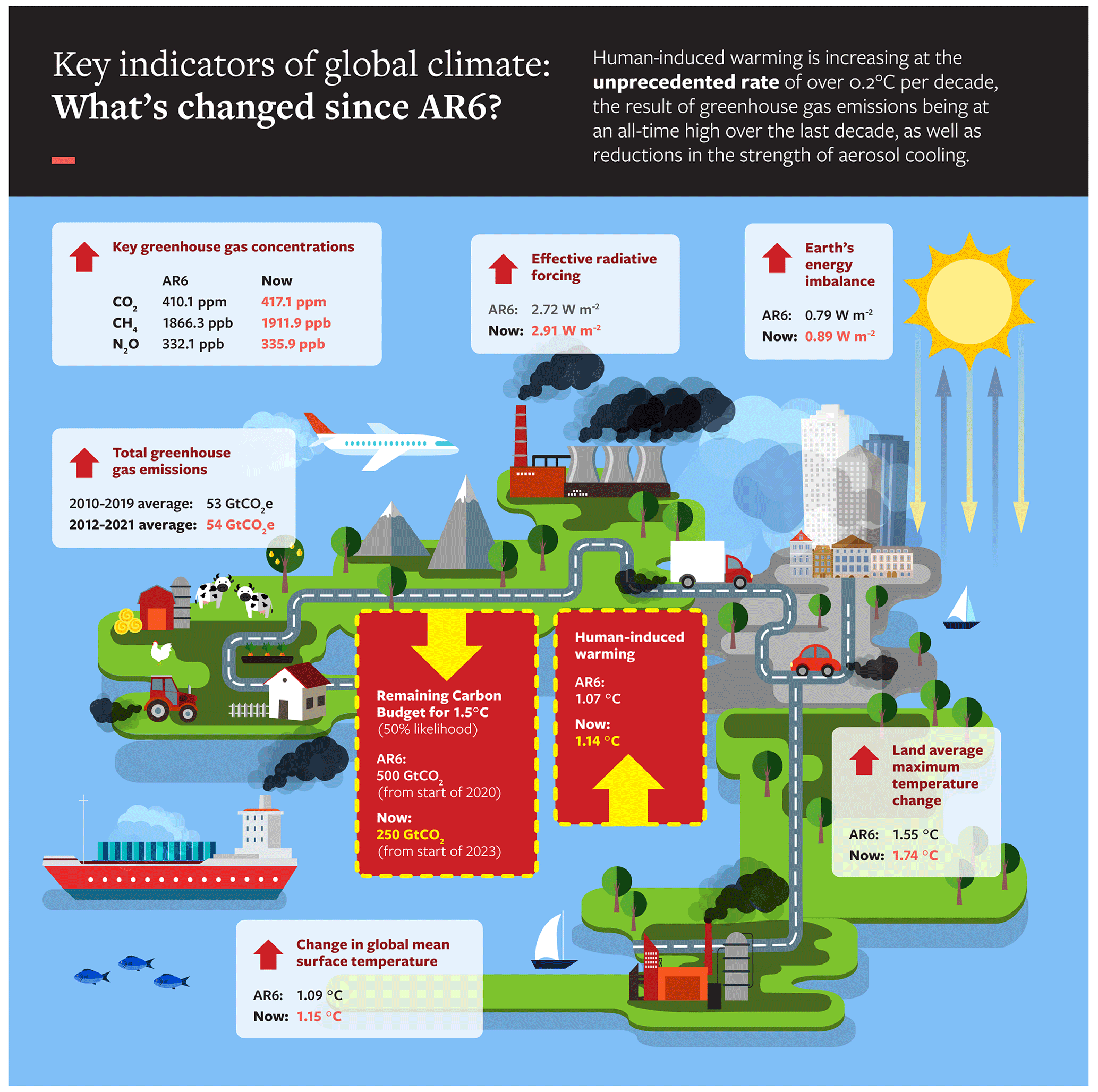
https://essd.copernicus.org/articles/15/2295/2023/
Thank you, representative Pham, for all you do, and for this thorough explanation of what needs to be done to fix transportation funding in Oregon.
But it’s NOT thorough. She doesn’t actually say how she would raise revenue.
Thank you, Rep. Khanh Pham. I appreciate your willingness to stand for such a boring topic that most people don’t think about, yet impacts everyone.
For everyone asking how revenue can be raised if we don’t have the gas tax or tolling, the goal is to never be dependent on car centric revenue sources again; so we have to imagine what a solution can look like. No one person has an answer.
One model I think is worth investigating is the building of state wide rail projects whose tickets will pay for all transportation construction and maintenance. Over time this revenue source can grow to be larger than the state Highway fund because rail services are much more cost effective that after construction, fares can pay in perpetuity. Imagine if you pay $15 for an all day high speed rail trip along the coast with friends and family, or through the eastern desert, and the gorge. Rail is the future of transportation.
Some roads will fall into disrepair and need to be closed. If we have to lose a % of our roads to ensure a livable planet, I’m all in.